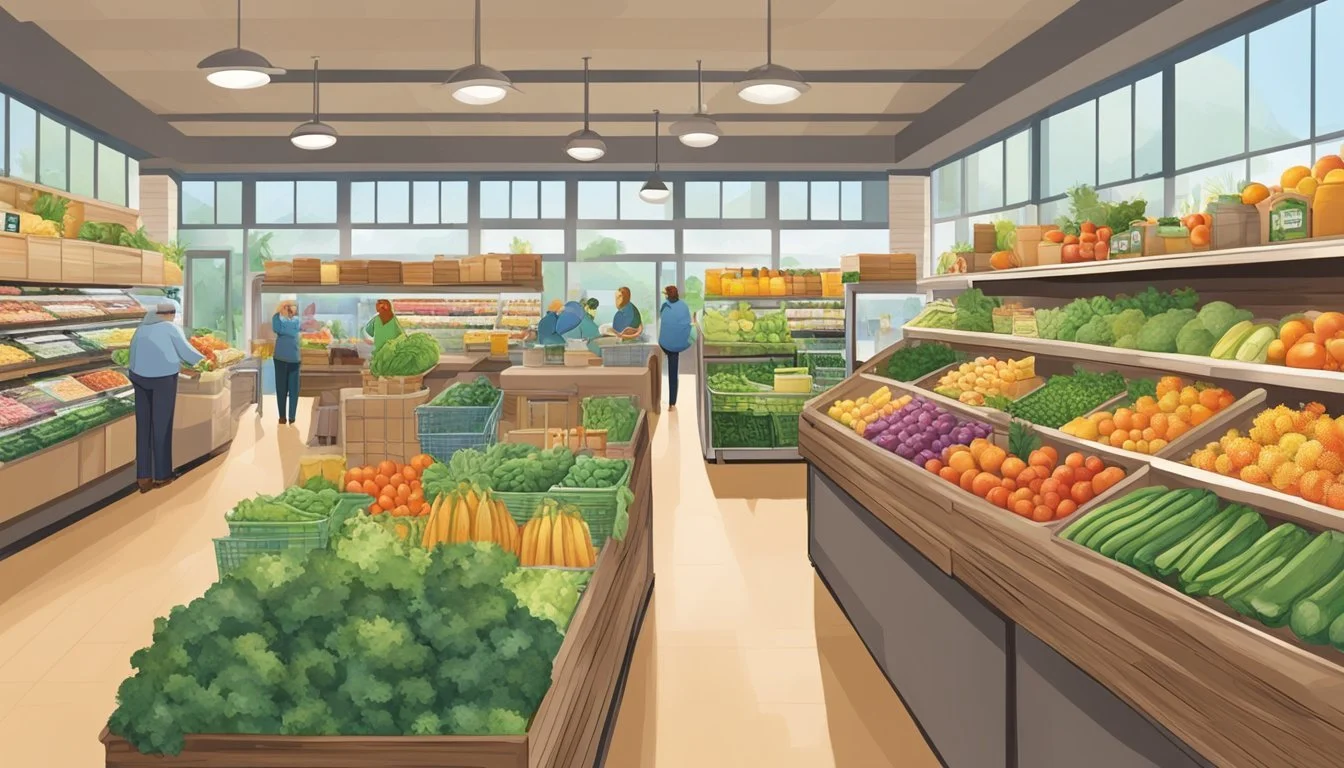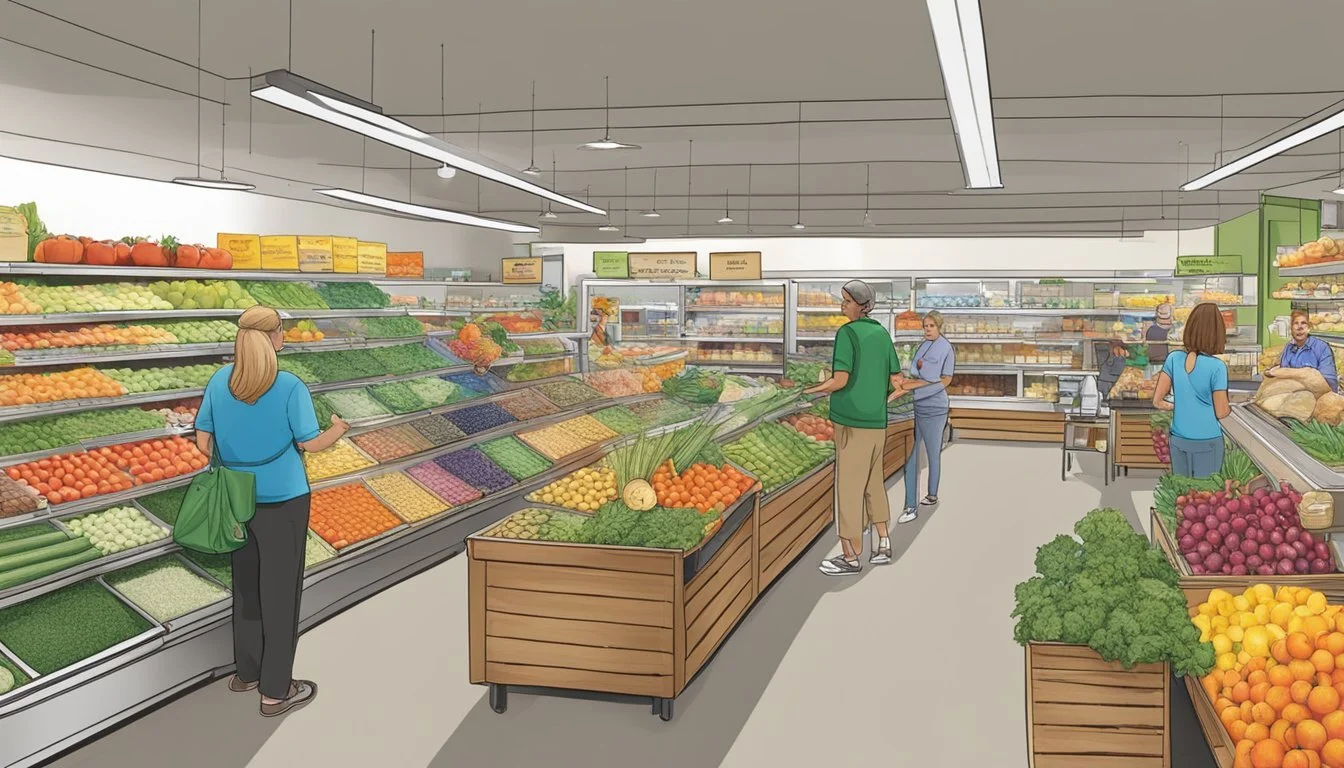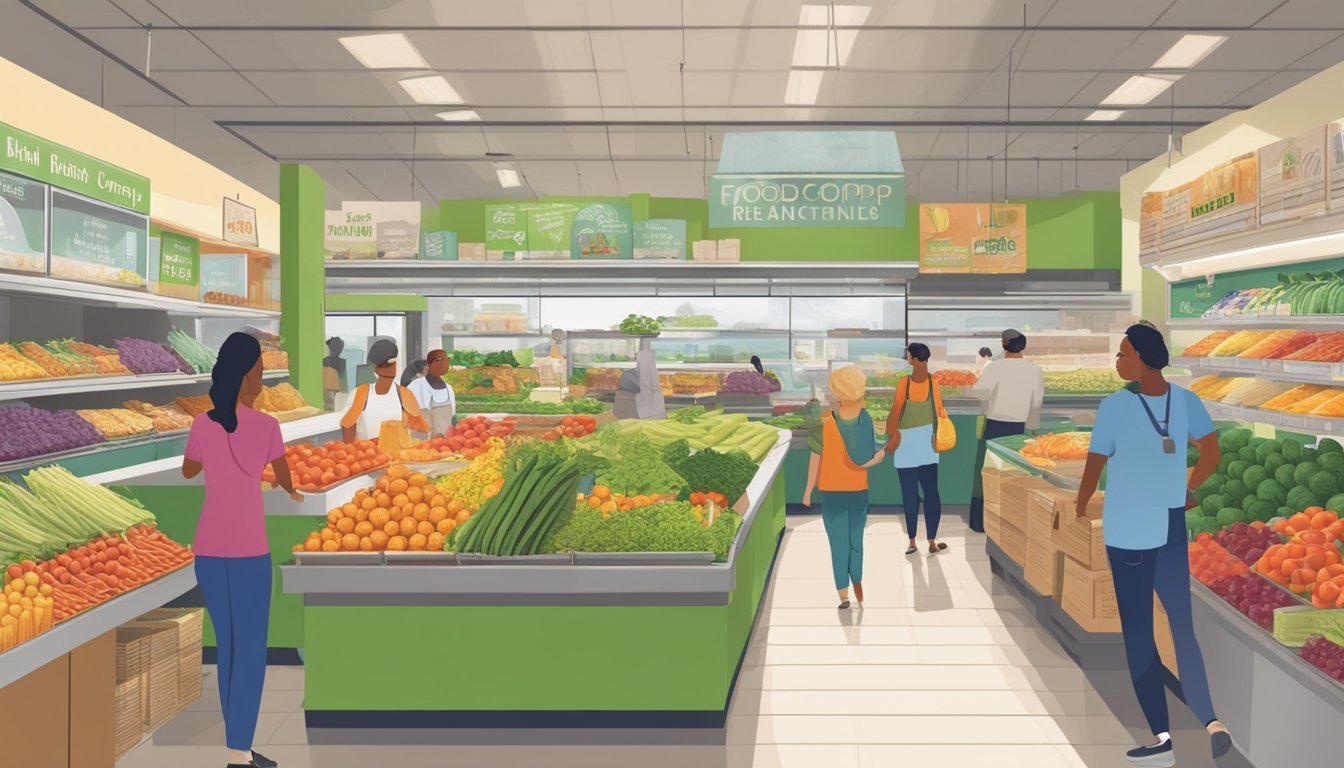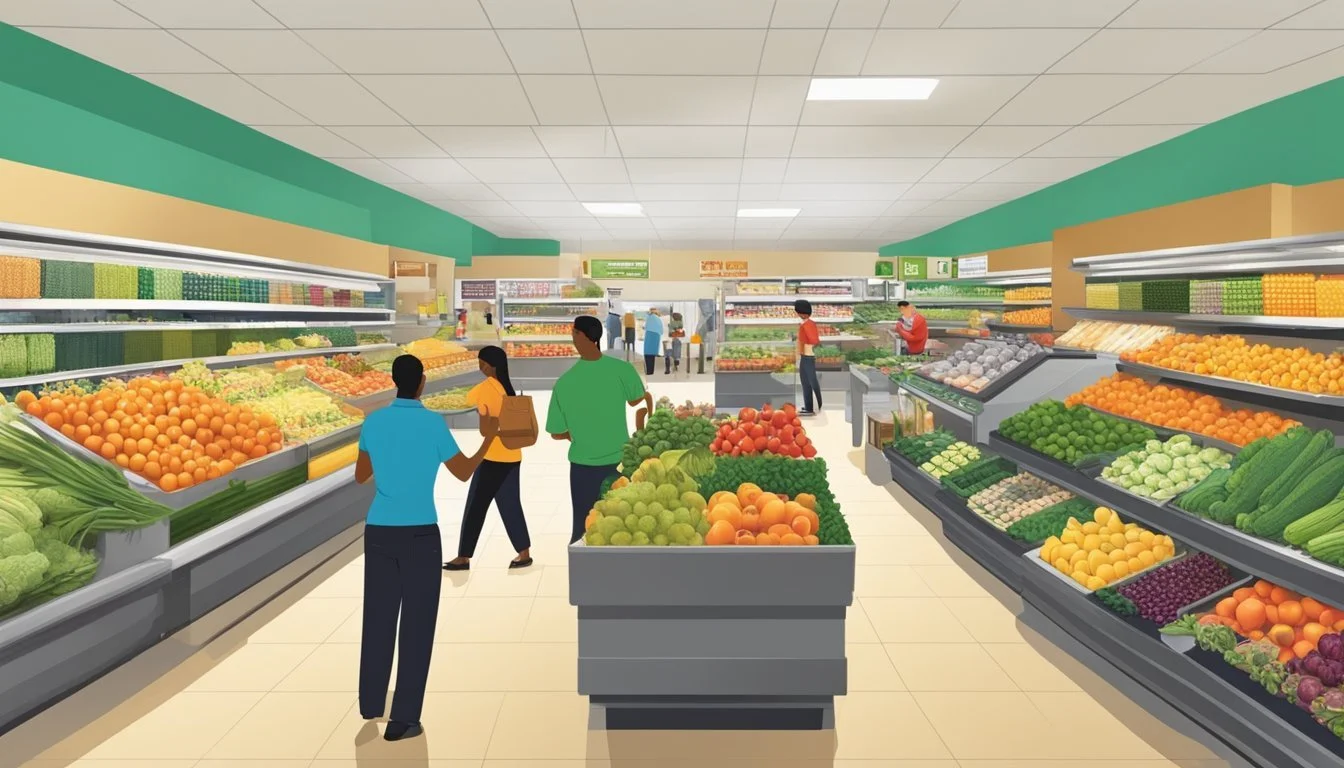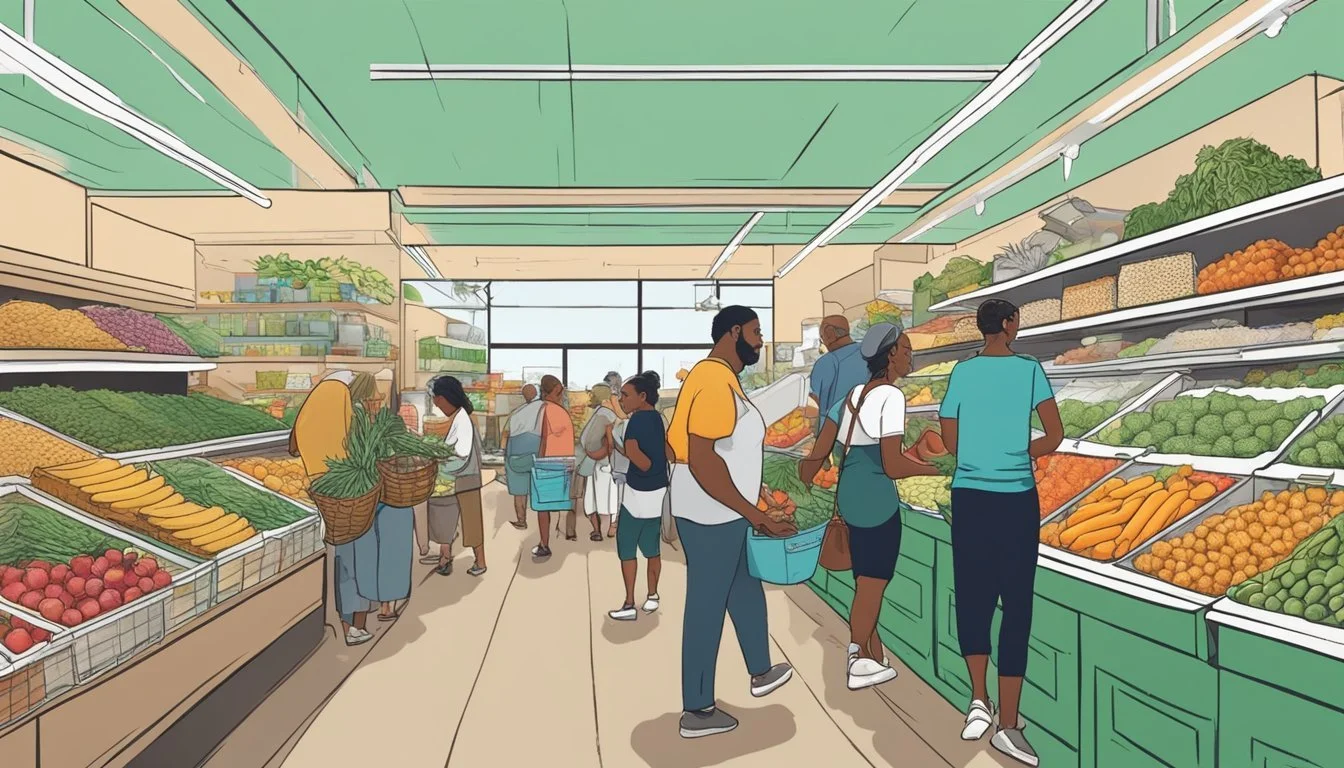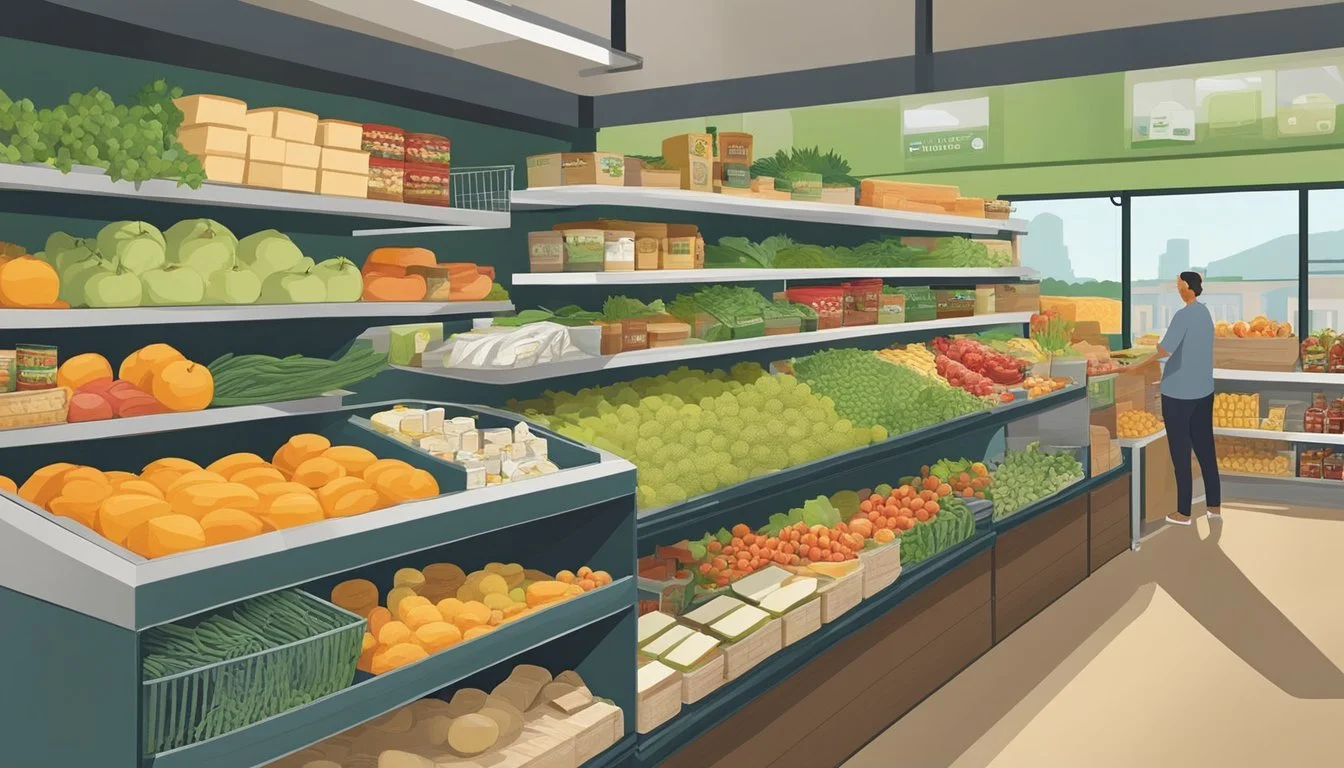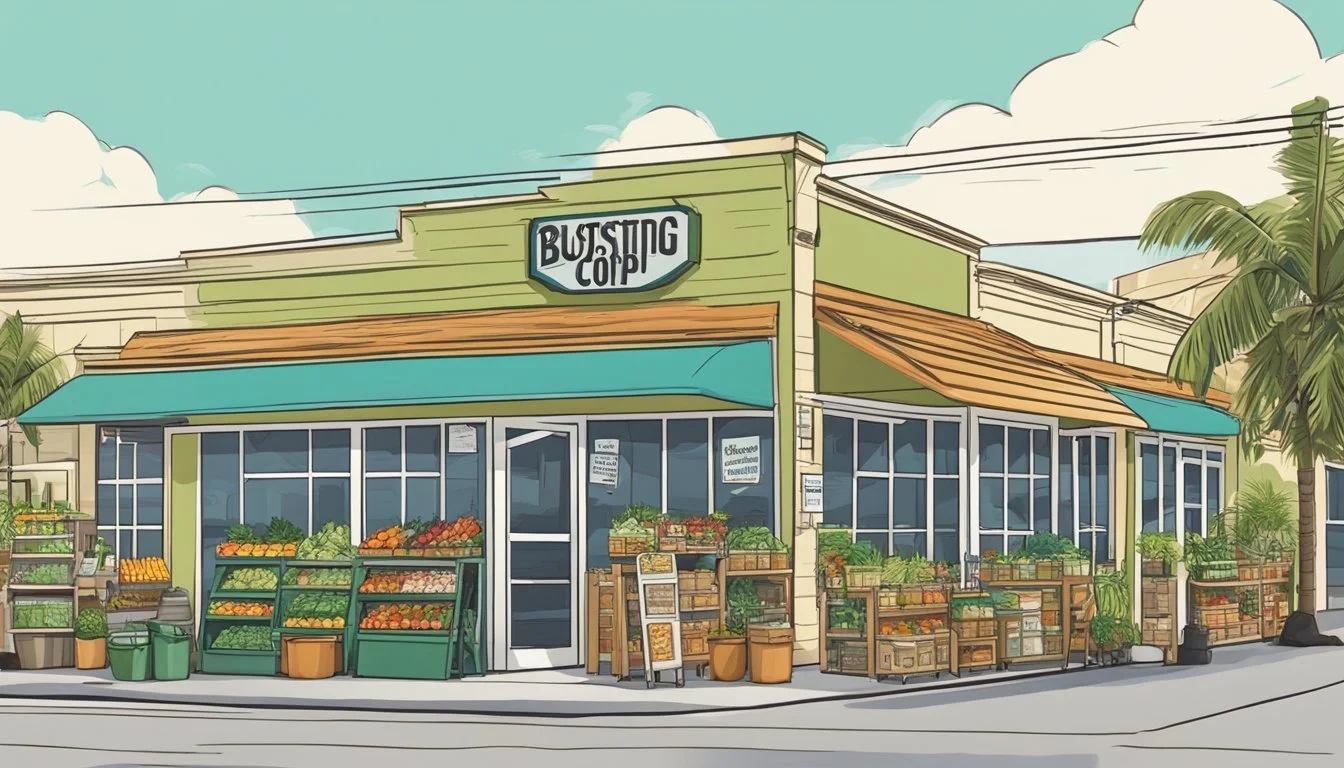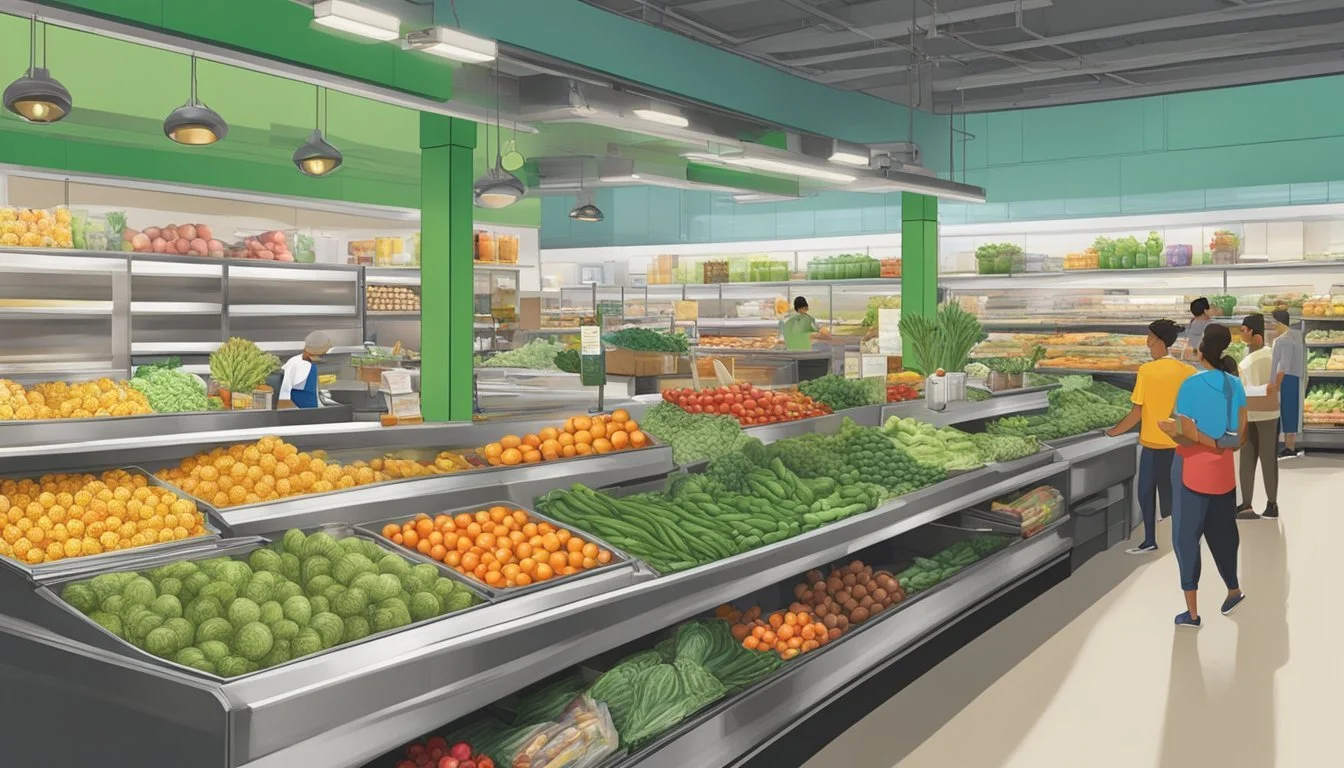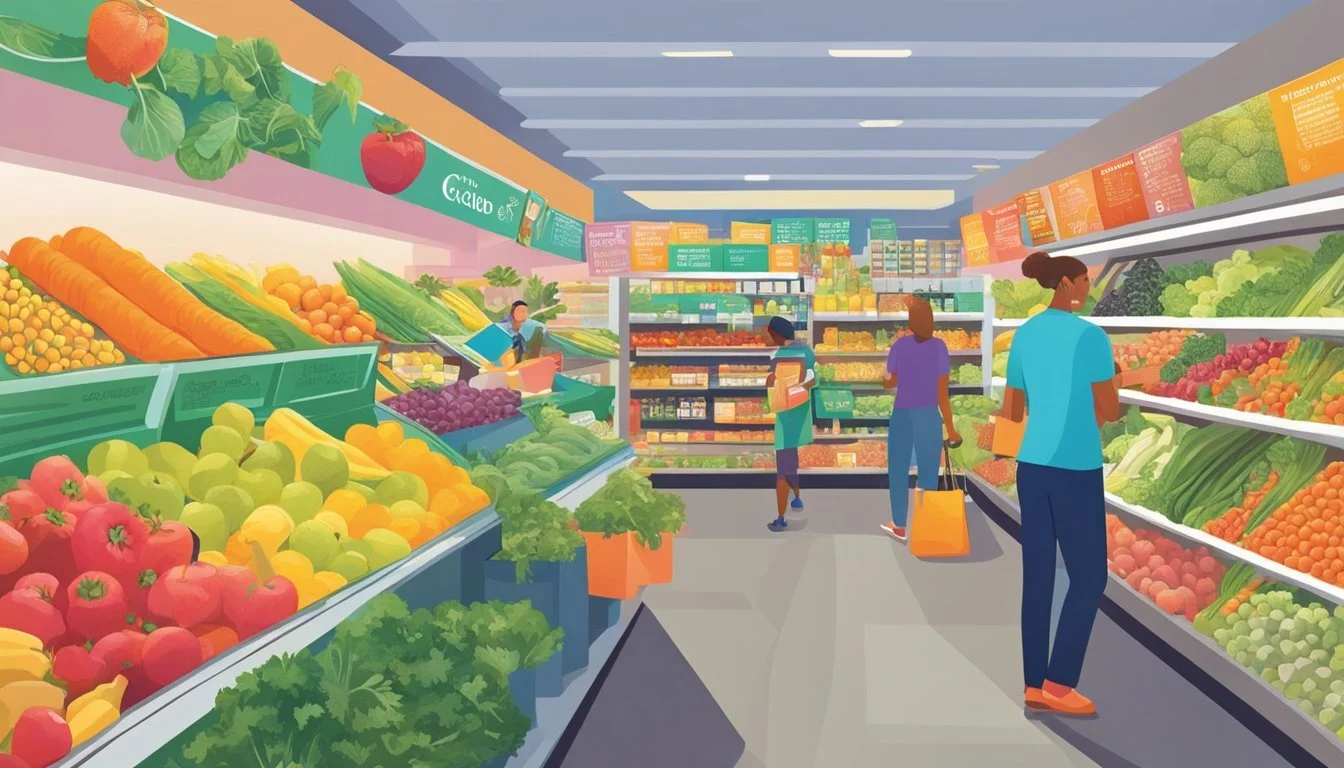Guide to Food Co-Ops in West Palm Beach, FL
Your Essential Resource
West Palm Beach, Florida, with its sunny skies and lush landscapes, offers a vibrant community-oriented approach to grocery shopping through its numerous food co-ops and local produce buying clubs. Food co-ops are member-owned marketplaces that aim to provide access to wholesome, locally-sourced, and often organic food products. They are based on the principles of community involvement, sustainability, and consumer education. These co-ops support the local economy by offering products from nearby farms and artisans, creating a direct connection between consumers and the source of their food.
Residents in West Palm Beach have the opportunity to join initiatives such as "Joy's Organic Buying Club," which is not a conventional store, but a club where members can purchase organic produce. Food co-ops like the Rise & Shine Food Co-Op emphasize strengthening local families and communities. Alongside food co-ops, organizations like Palm Beach Harvest play a significant role in fighting food insecurity by distributing rescued food year-round to various pantries, banks, churches, and nonprofits, ensuring access to food for those in need.
Moreover, these alternatives to mainstream grocery shopping are a testament to West Palm Beach's dedication to health and community wellbeing. By choosing to shop at a food co-op, residents engage in a cycle of mutual benefit, whereby they can find fresh, nutritious foodstuffs while simultaneously supporting the viability of local producers and contributing to a more robust local economy.
Understanding Food Co-Ops
In West Palm Beach, FL, food co-ops stand as a testament to community-driven efforts. They represent an alternative way of sourcing food that emphasizes local control, quality, and member-owner engagement.
What Is a Food Co-op?
A food co-op is a member-owned cooperative enterprise that operates for the benefit of its members, allowing them to make democratic decisions regarding the sourcing, and selling of food. Generally, a co-op focuses on offering quality, locally sourced products, often emphasizing organic and non-GMO options. Most food co-ops provide consumers with a range of products similar to a conventional grocery store but with a greater focus on local and sustainable sourcing.
The History of Food Co-ops in Central Florida
Central Florida, including areas like West Palm Beach, has seen a progressive development of food co-ops. These entities have been driven by consumer interest in connecting with local agriculture and obtaining food transparency. While co-ops have been evolving in different forms across the United States since the early 20th century, their presence in Central Florida has become more prominent in recent decades, spurred by a broader national movement toward health-conscious and sustainable living.
Benefits of Joining a Food Co-op
Joining a food co-op in West Palm Beach, FL, offers tangible rewards that extend beyond the typical grocery shopping experience. Members not only gain access to high-quality food but also contribute positively to their local economy.
Economic Advantages for Members
Members of a food co-op enjoy economic benefits through potential savings on their grocery bills. Co-ops operate on a not-for-profit basis, which allows them to focus on providing value to their members rather than generating profits for shareholders. By pooling resources, co-op members often find that their collective buying power can lead to affordable prices on a range of products, including organic and locally grown items.
Access to Fresh, Organic Produce
Food co-ops prioritize offering fresh, organic produce to their members. These co-ops are well-known for sourcing seasonal vegetables and fruits straight from local farms, ensuring that the community has access to nutritious and flavorful food. By maintaining close ties with producers, co-ops can often provide organic options that are difficult or expensive to find in conventional grocery stores.
Supporting Local Farmers and Ranchers
When consumers become members of a food co-op, they actively support local farmers and ranchers. This support helps sustain the local agricultural community and often encourages environmentally friendly farming practices. By choosing a co-op, members underscore the value they find in local, responsibly-sourced food, demonstrating a commitment to both the local economy and the environment.
By catering to those seeking local, fresh, and affordable options, West Palm Beach food co-ops offer a distinctive shopping experience that benefits members and the wider community alike.
How Food Co-Ops Operate
Food co-ops are democratic entities where control is exercised by their members. These community-centric operations focus on providing local access to high-quality food while supporting the local economy.
Member Control and Patronage
Members of food co-ops have a direct say in the operations through a democratic voting process. Each member typically has one vote, ensuring equal say in key decisions, such as electing the board of directors or making significant policy changes. Patronage in co-ops refers to the members' use and support of the co-op's services and products. Profits are often allocated among members in proportion to their patronage, typically distributed as dividends or reinvested in the co-op.
The Role of Community in Co-ops
Community involvement is pivotal to food co-ops. They often prioritize local suppliers to stimulate the economy within the community. Co-ops aim to create a sense of belonging and contribute to the well-being of the area they serve, often through educational outreach on nutrition and sustainable practices.
Volunteer Opportunities
Volunteering is instrumental in food co-ops and can come with benefits such as discounts or educational opportunities. It helps maintain the cooperative's health by keeping operational costs low, increases member engagement, and fosters a collaborative atmosphere within the co-op. Volunteers are often involved in day-to-day tasks, special events, and serve on committees or the board of directors.
Finding Food Co-Ops in West Palm Beach
West Palm Beach offers a variety of food co-ops, which serve as an excellent source of organic and locally-sourced products for conscious consumers. By knowing where to look and what each co-op offers, residents can tap into a community-oriented way of shopping that prioritizes fresh, nutritious food.
Locating Co-Ops Near You
To find a food co-op in West Palm Beach, prospective members can start with a simple map search to identify the most conveniently located options. Additionally, organizations like LocalHarvest are useful resources, providing a list of nearby food co-ops. For example, Joy of Organics Produce Buying Club is a known buying club, though not a store, servicing the West Palm Beach area.
Residents should consider:
Proximity to home or work
Operating hours
Membership requirements
Checking these details ahead of time ensures that the selected co-op aligns with one's lifestyle and accessibility needs.
Evaluating Co-op Offerings
When evaluating different food co-ops, it's imperative to check the range of products they offer. Some co-ops might focus solely on organic produce, while others might offer a broader selection including dairy, baked goods, and other groceries.
Key factors include:
Product Range: What types of food does the co-op offer? Is the produce organic, and are there options for dietary restrictions?
Sourcing: Are the products sourced from local farms or growers? This can significantly impact the freshness and quality of the food.
Pricing: While co-ops can offer competitive prices, it is important to ensure that the cost aligns with one's budget.
Through thorough research and consideration, West Palm Beach residents can find a food co-op that meets their personal needs for quality, local food.
Shopping at Food Co-Ops
Shopping at food co-ops in West Palm Beach offers access to quality produce at affordable prices. These community-focused entities often provide the best value for seasonal groceries.
Navigating Seasonal Selections
Seasonal produce plays a pivotal role in the offerings of a food co-op. Shoppers find that selections change throughout the year, reflecting what is currently harvested. For instance, a co-op might offer fresh citrus fruits in the winter and an array of berries in the summer. Shoppers benefit by getting the freshest, often organic produce that supports local farmers.
Understanding Pricing and Value
Food co-ops are known for offering high-quality groceries at affordable prices. Their pricing structure is designed to provide value to their members through a non-profit model. While costs might not always be lower than conventional grocery stores, the value comes from purchasing high-quality, often locally sourced, and organic items. Co-op members usually have a say in the operations, further influencing the balance between quality and cost.
Specialized Products at Food Co-Ops
Food co-ops in West Palm Beach, FL, cater to a niche market with an emphasis on high-quality, specialized products. They often offer a diverse range of organic and natural items, along with locally sourced honey, nuts, and dried fruits (What wine goes well with dried fruits?), providing health-conscious consumers with distinctive options.
Organic and Natural Sections
Food co-ops feature sections dedicated exclusively to organic and natural products. These areas of the store prioritize goods that are free from synthetic pesticides and fertilizers. Shoppers seeking clean eating options will find a variety of organic vegetables, fruits, dairy, and meats that are certified and adhere to strict federal standards.
Local Honey, Nuts, and Dried Fruits
Shelves at food co-ops are often stocked with local honey known for its natural flavors and potential health benefits, including raw and unfiltered varieties. Nuts and dried fruits (What wine goes well with nuts and dried fruits?) offer nutritious snacking options, with many stores sourcing these products from local growers. This not only supports the local economy but also ensures freshness and reduces the carbon footprint associated with transportation.
Co-Op Membership Details
Joining a food co-op in West Palm Beach, FL, provides members with control over the products they buy and contributes to keeping goods affordable. It ensures access to high-quality groceries, often sourced from the local community.
How to Become a Member
To become a member of a food co-op in West Palm Beach, individuals usually need to:
Complete an application: This form typically asks for basic personal information and an acknowledgment of the co-op's principles.
Purchase a membership share: A one-time fee that may vary in amount, which signifies financial participation and investment in the co-op.
Membership in a co-op usually entails a combination of rights and responsibilities. Members often have a say in co-op governance, which can include voting on important decisions or serving on the board.
Contributing to the Co-op's Success
Members play a crucial role in the success and sustainability of the co-op. They can contribute by:
Volunteering: Co-ops often rely on member volunteerism for various tasks, reducing labor costs and keeping prices affordable.
Participation in decision-making: Member control is fundamental, and active involvement in elections and feedback mechanisms is encouraged.
Through contributing to the co-op's success, members reinforce the commitment to affordable pricing, community building, and supporting local producers.
Ordering and Delivery Options
Residents of West Palm Beach have the luxury of numerous food ordering and delivery services that cater directly to their doors or offer convenient pick-up locations. These options streamline the process of accessing fresh organic produce and varied meal choices to fit different lifestyles.
Home Delivery Services
In West Palm Beach, companies such as Organic Grown Direct specialize in home delivery, bringing fresh, 100% USDA Certified Organic produce right to customers' doors. This service offers the convenience of pre-selected or customizable boxes filled with the freshest seasonal fruits and vegetables. Deliveries are usually scheduled and can be recurring, so residents never miss out on their weekly supply of organic goods.
Pick-Up Locations and Schedules
For those who prefer to pick up their orders, several food delivery services in West Palm Beach offer specific pick-up locations. These locations often have set schedules, with some available on Friday to accommodate the end-of-week routine. Customers can place their orders ahead of time and choose the most convenient pick-up point and time slot for their schedules. This method combines the ease of online ordering with the immediacy of getting products without the wait associated with home delivery.
Comparing Food Co-Ops with Other Shopping Options
Food cooperatives offer an alternative way to shop for groceries, existing alongside traditional retail stores and buying clubs. Each option presents a distinct shopping experience and benefits.
Food Co-Ops vs. Retail Stores
A food co-op functions distinctively from retail stores. It operates on a membership basis, often incorporating customer input into stock selection and store policies. Members might receive special benefits like patronage dividends in profitable years. Retail stores, conversely, typically prioritize broad appeal and convenience, focusing on volume sales without shopper ownership or governance.
Ownership: Retail stores are typically owned by individuals or stakeholders with no direct consumer control. Food co-ops are member-owned, giving them a say in operations.
Product Selection: Food co-ops often prioritize local, organic, and sustainably-sourced products, while retail stores offer a wide array of national brands and conventional products.
Pricing: Retail stores usually have standardized pricing, whereas food co-ops might offer member discounts and might share profits with members.
The Advantages of Buying Clubs Over Traditional Shopping
Buying clubs offer a level of specificity and community-centered shopping akin to food co-ops, but without a brick-and-mortar presence. They leverage collective purchasing power to obtain goods directly from distributors at reduced prices. This method can be more convenient compared to traditional shopping, as it saves members trips to physical stores and can provide bulk quantities at discounted rates.
Convenience: Buying clubs often allow for online ordering and flexible pickup or delivery, which can be more convenient than visiting traditional retail outlets.
Cost Savings: Members of buying clubs typically reap the financial benefits of bulk purchasing directly from suppliers or producers, bypassing traditional retail markups.
Engaging with the Food Co-Op Community
Participation within the food co-op community in West Palm Beach, FL not only strengthens member ties but also promotes the cooperative principles of mutual help and education.
Events and Workshops
Food co-ops in West Palm Beach consistently host events and workshops aimed at creating a robust community platform for both members and non-members alike. These can range from cooking classes and health talks to local producer spotlights. They strive to offer an inclusive space where individuals can learn about sustainable practices, co-op membership benefits, and how to actively participate in their local food system. For current events, one should check the local co-op's calendar or join their mailing list for updates.
Examples of workshops:
Cooking with Local Produce
Sustainable Living and Reducing Waste
Community Outreach and Education
As pillars of community empowerment, food co-ops in West Palm Beach prioritize outreach and education. They often collaborate with local organizations to offer educational programs about nutrition, food security, and the impact of cooperative economics on local communities. Co-ops are dedicated to fostering community engagement, ensuring that their outreach efforts also provide support to local producers and educate the public about the benefits of co-op membership and consumption of locally sourced goods.
Community outreach initiatives include:
Partnerships with schools for educational programs
Information stands at local community events
Sustainability and the Food Co-Op Model
In West Palm Beach, FL, food co-operatives are vital in championing environmental stewardship and sustainable agricultural practices. They are committed to providing locally sourced, fresh organic produce that supports both the ecosystem and the community.
Environmental Responsibility
Food co-ops in West Palm Beach take environmental responsibility seriously by reducing food miles through promoting locally grown food. This not only diminishes greenhouse gas emissions due to less transportation but also ensures the freshness of the produce. By emphasizing organic and natural food selections, these co-ops further minimize the reliance on synthetic pesticides and fertilizers, which are known to harm the environment.
Promoting Sustainable Agriculture
Sustainable agriculture forms a foundational principle for food co-operatives in the region. They prioritize partnerships with local farmers who adhere to organic farming methods, thus supporting a food system that is regenerative and responsible. Several co-ops also provide educational resources about sustainable practices, emphasizing the importance of maintaining soil health, conserving water, and utilizing non-GMO seeds. Their commitment is reflected in the careful curation of fresh organic produce that aligns with seasonal availability, fostering a deeper connection between consumers and the natural agricultural cycles.

